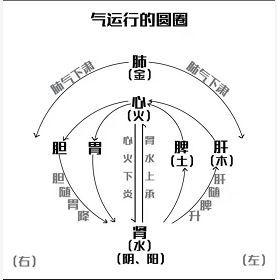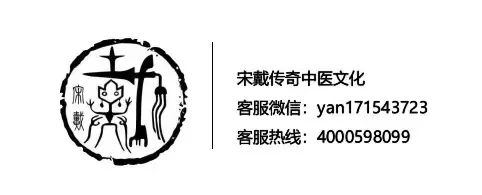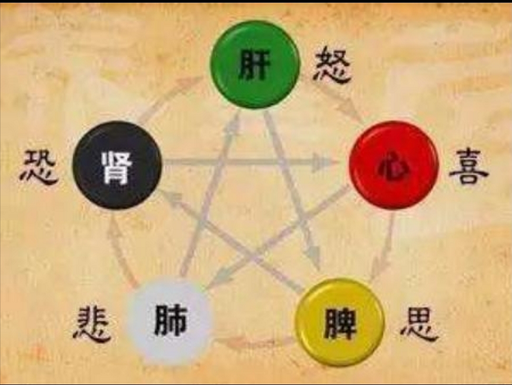The Impact of Emotional Imbalance on the Body
Human psychological activities, referred to in Traditional Chinese Medicine (TCM) as qíngzhì (情志), or emotions, are the body’s instinctive comprehensive reflection when interacting with and understanding objective things. Proper psychological health care is a crucial aspect of human health, holding significant value throughout life, and has been a focus of humanity since ancient times. As early as the ancient era, the Huangdi Neijing (黄帝内经) recognized that the body and spirit are unified; the spirit can govern the body, and only through this unity can one achieve physical and mental health and enjoy a long life. It emphasizes the need for individuals to exercise self-control over their spirit and resist or eliminate the interference of negative social influences. In modern society, with rapid economic and civilizational development, everyone is overwhelmed, leading to various emotions such as anxiety, panic, sadness, and anger rising within individuals, continuously damaging their vitality and spirit, thereby weakening the body’s qì (气) and xuè (血), affecting the functions of the five internal organs and reducing immunity. Clinical observations by practitioners over many years have found that the vast majority of patients present with emotional disorders as their primary complaint.
1. Why do emotions cause diseases?
TCM believes that emotional activities, as reflections of psychological factors, mainly manifest as seven types of emotions: joy, anger, worry, thought, sadness, fear, and shock. These are the responses of human consciousness to external phenomena.
Within the normal range of emotional activities, they generally do not cause illness. Only sudden, intense, or prolonged emotional stimuli that exceed the body’s normal physiological activity range can disrupt the body’s qì mechanism, leading to imbalances in the yin and yang of the internal organs and the qì and xuè, which can result in disease.
The Neijing states: “Anger harms the liver, joy harms the heart, sadness harms the lungs, fear harms the kidneys, and thought harms the spleen,” indicating the correspondence between the five internal organs and the five emotions.
2. What are the symptoms of emotional disorders in the body?
Taking the currently most prevalent conditions such as thyroid nodules, female breast hyperplasia, and uterine fibroids as examples of emotional disorders:
In TCM, the liver is likened to a bottle of soda. When this bottle is shaken, gas is produced, which represents liver qì (肝气). When a person is angry, this bottle shakes violently, causing an excess of liver qì to rise, preventing the stasis blood that should descend from moving downwards, leading to accumulation in the uterus and ovaries, which can long-term result in gynecological diseases such as uterine fibroids and ovarian cysts.
Breast diseases are a very typical emotional disorder. Some women tend to bottle up their anger and do not express it, leading to resentment and stagnation of qì and xuè. Over time, this can lead to liver qì stagnation, which can transform into heat; furthermore, those who are prone to brooding may overthink, which can harm the spleen. A deficiency in the spleen can lead to phlegm production, and when this phlegm combines with the heat and toxins from prolonged stagnation, it can block areas primarily governed by the liver meridian, such as the breasts, thyroid, and uterus. You may also notice that those who appear to have a good temper and tend to downplay significant issues often have weaker health, as the energy of stagnation is dark and downward.
Currently, many children are also a major demographic affected by emotional disorders, presenting symptoms such as:
1. Behavioral regression, daytime incontinence, and nighttime bedwetting;
2. Nighttime teeth grinding, crying, and sudden outbursts of anger;
3. Various unusual sleeping positions and waking up in a bad mood;
4. Daydreaming and saying strange things;
5. Frequent crying and having a bad temper;
6. Recurring allergic diseases;
From a TCM perspective, these children often have issues such as liver qì stagnation and spleen and stomach weakness. From a psychological perspective, many problematic children are affected by negative energy fields at home. Some may have poor habits, such as being overly indulged by elders, leading to emotional volatility; others may be from two-child families where the original love is not adequately met, resulting in insecurity; and some may come from families with ongoing parental discord, where children manifest illness as a way to unite parents who are on the verge of separation through a common goal, thereby neglecting the precarious state of their marriage. It is equally important to respect children’s emotional needs and care for their emotional well-being; otherwise, it may lead to various inexplicable ailments that are difficult to remedy.
3. How should emotional disorders be treated and prevented?
Since emotional disorders primarily stem from extreme emotional imbalances leading to disruptions in the qì mechanism, treatment should focus on harmonizing one’s emotions, supplemented by TCM methods such as herbal medicine, acupuncture, and tuina (推拿).
Regarding the healthy lifestyle advocated by TCM, the Suwen: Shanggu Tianzhen Lun (素问·上古天真论) states: “Calmness and emptiness lead to true qì, and guarding the spirit internally prevents illness from arising.”
Thus, modern health maintenance should emphasize not only physical fitness but also nurturing the mind and spirit. Avoid excessive cold, refrain from staying up late, maintain a peaceful mindset, keep emotions stable, avoid anger, and refrain from indulgence to ensure the fullness and smooth flow of qì; this way, one will not easily fall ill.



